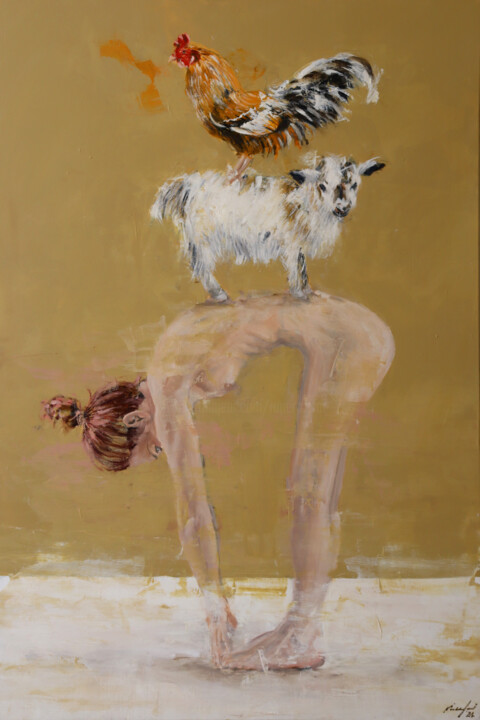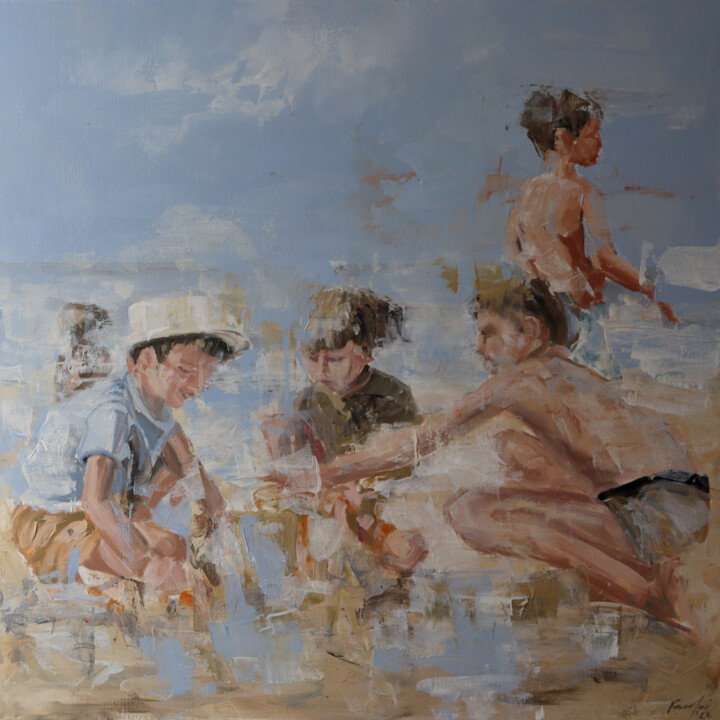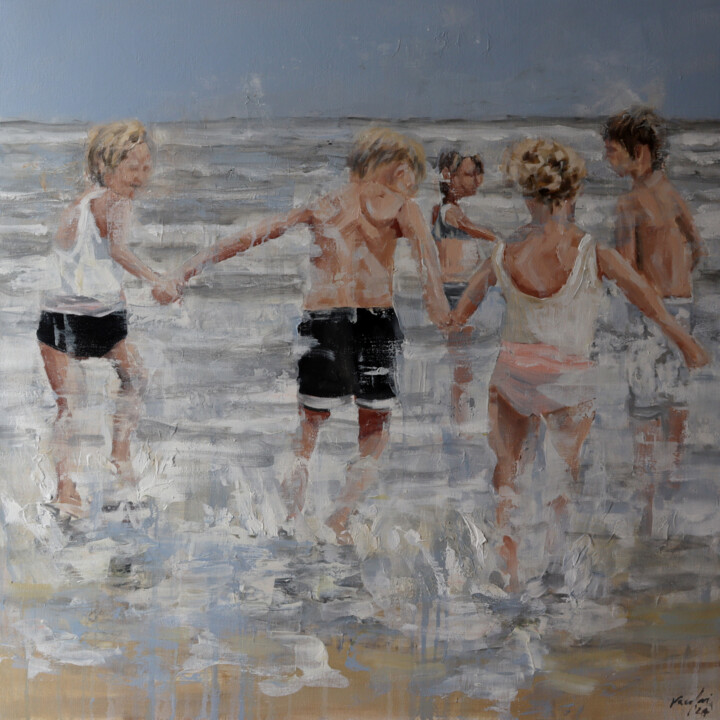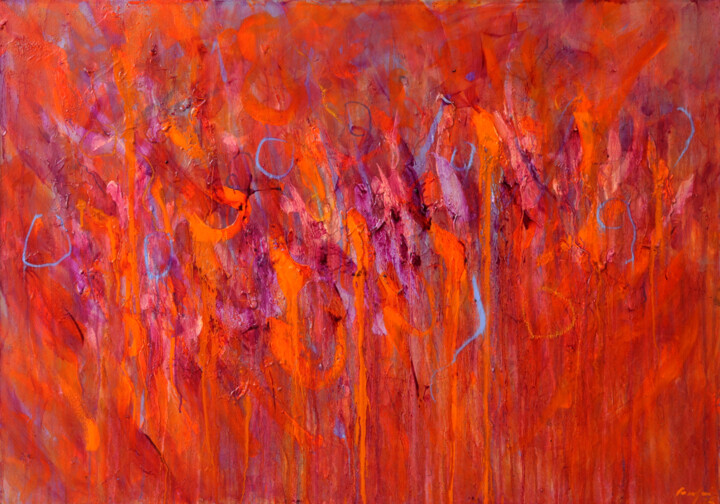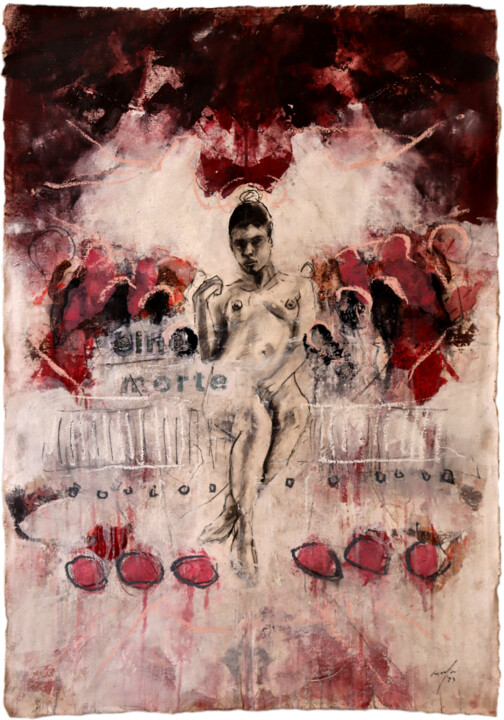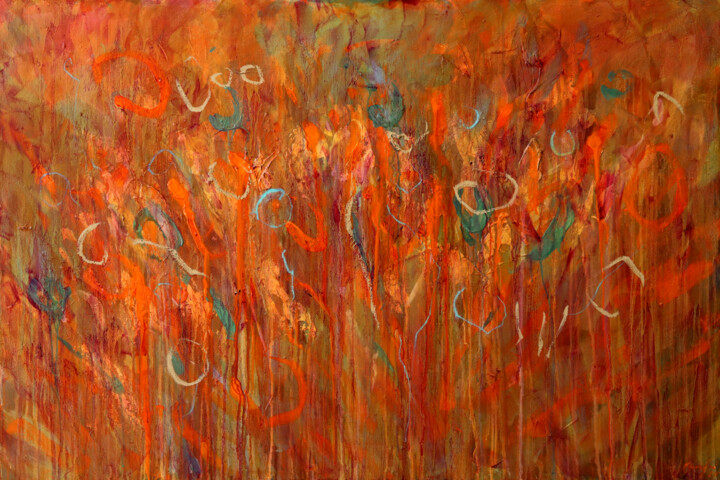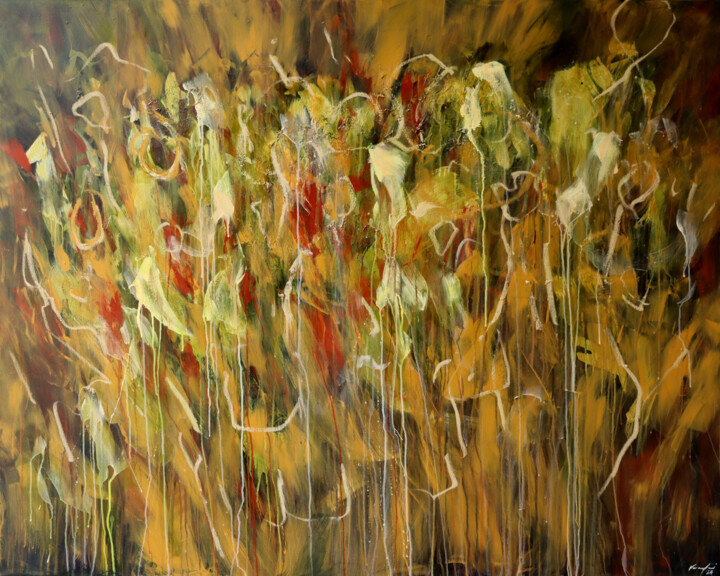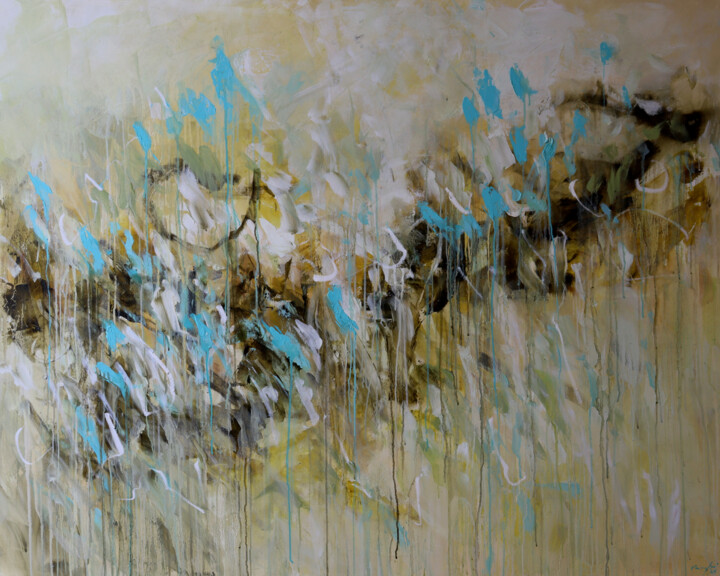What made you approach art and become an artist? (events, feelings, experiences...)
My father was involved in Malta's department of culture so from an early age I was exposed to a lot of artistic activities, from art exhibitions to concerts and theatre. So Art had always been a constant in my life and my interest in drawing and painting soon found a scope. This proximity to the art world and exposure to art had a big influence in my life and I soon realised that the issue was not if I wanted to become an artist but rather how to make a living while involved in the arts. That's why I pursued a career in Interior design which supported me until I established myself as an artist.
What is your artistic journey, techniques and subjects you have experimented with to date?
I tend to work in batches and since I get easily bored I change subjects on a regular basis. Abstracts, human figures, landscapes, urban views are all subjects that I visit regularly. Oils, acrylics and inks remain my favourite media but I also tend to experiment in sculpture and anything digital, from photos to videos.
What are 3 aspects that differentiate you from other artists, making your work unique?
I experiment a lot in both media and subjects, I tend to be free and not be afraid of 'accidents' while working and I'm also not worried about being unique, we all are.
Where does your inspiration come from?
at least for me, art has always been 1% inspiration and 99% perspiration. But that 1% is crucial. Simple everyday things are always a great source of inspiration and so is nature. But so is human interaction in all it's forms. Politics, religion (especially the human obsession with ritual), literature, music, life; inspiration can be found everywhere, especially if you look hard enough.
What is the intent of your art? What visions, sensations or feelings do you want to evoke in the viewer?
It's all about creating a conversation with the viewer. I bring the art, the technique, but also my life experience, my history and my message, and so does the viewer. if these three elements resonate, the conversation starts. The feelings might change, someone might feel happy about a piece, another angry or sad and that's ok. As long as an artwork moves them, the scope is achieved.
What is the process of creation of your works? Spontaneous or with a long preparatory process (technique, inspiration from art classics or other)?
When I want to create a body of work, a collection, there is always a long preparatory process involved. research, experimentation with techniques, creating 'rules' and breaking them, planning in terms of subjects and sizes etc. But I also leave a lot of room for spontaneous accidents. A work of art has a tendency to have a life of its own while being created, as an artist you need to respect that.
What techniques do you prefer? If yes, can you explain it?
I see techniques as a means to achieve an end. You cannot create oil paintings if you don't know how oils work and that applies for all media. So in general, I tend to create processes which respect certain techniques and rules. Then I try to break them. Something I do regularly is use classical painting techniques but then add too much oil medium to the paint and the paint starts dripping. The results can be interesting and unpredictable.
Are there any innovative aspects to your work? Can you tell us which ones?
When you work hard enough and continuously search for your strengths and weaknesses you will start developing innovative aspects. You become a master of your own techniques. Even though art processes have been in place for a very long time, mastering a technique is also a way of making it yours, and that is always somewhat innovative. I think this also applies to my work. I don't claim to have reinvented the wheel, but the fact that the way I work and the processes I use are mine, the whole process becomes somewhat innovative.
Do you have a format or medium that you are most comfortable with? If yes, Why?
No, I try to stay away from comfort zones.
Where do you produce your work? At home, in a shared or private studio? And within this space how is your production organized?
I work in my own private studio, some 150sq.m in space, have dedicated areas for work on paper, painting area, sculpting area, storage and display area. photos attached
Does your work lead you to travel to meet new collectors, for shows or exhibitions? If so, what do you gain from it?
Yes it does and it's always a beautiful experience. Meeting new people and seeing new places is always an enriching experience but most of all I am always fascinated by other people's reaction to my work and that is something I am very interested in and look forward to.
How do you imagine the evolution of your work and your figure as an artist in the future?
Not really sure I want to imagine how my work will look like in the future, I hope I will be able to surprise myself in that respect. as an artist, I hope I remain secondary to my work. Way to many people become more important than what they do, I just hope I won't fall in that category.
What is the topic, style, or technique of your latest artistic production?
My latest collection, called 'atrophia' was inspired by my regular visits to Wied Qirda, a valley in Ħaż-Żebbuġ (Malta) where I have my studio. after a period of heavy stormsI couldn't help but notice the destructive effect water had on this environment. Although water is a necessity for life, like everything else, too much of it also has its downfall. This destructive process had me inspired to produce a body of abstract oil paintings works. the works are now displayed on my website and artmajeur
Can you tell us about your most important exhibition experience?
My most important exhibition will always be the next one. the moment I start believing that the most important exhibition happened in the past I will probably stop working. So my best and most important show is yet to come :)
If you could have created a famous work in the history of art, which one would you choose? And why would you choose it?
Not sure if I would choose one of Rembrandt's self portraits, Lucian Freud's Benefits Supervisor Sleeping or Mark Rothko's collection at the Rothko Chapel. Depends on the mood of the day I guess.
If you could invite a famous artist (dead or living) to dinner, who would it be? How would you propose him/her to spend the evening?
the list of artists can be endless here, But Rembrandt Lucian Freud and Mark Rothko will definitely occupy the top 3 spots. Not sure what the protocol is to create a banquet for the gods, but the definitely deserve one.




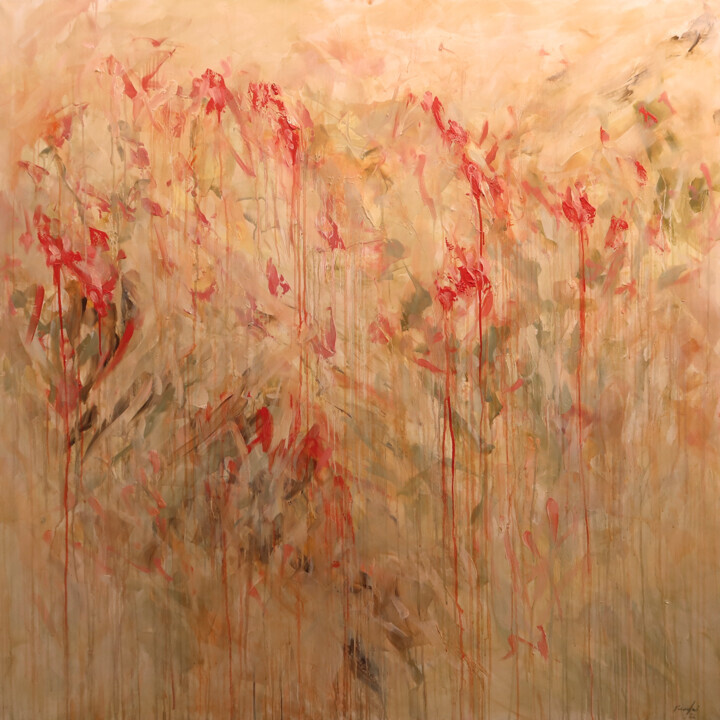
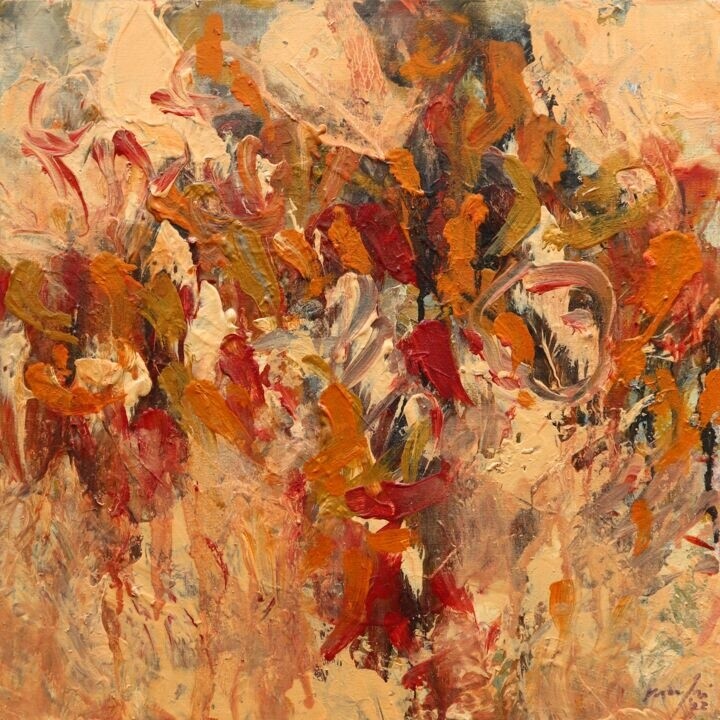

 Olimpia Gaia Martinelli
Olimpia Gaia Martinelli

